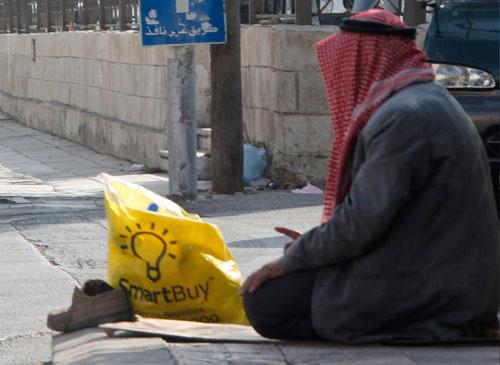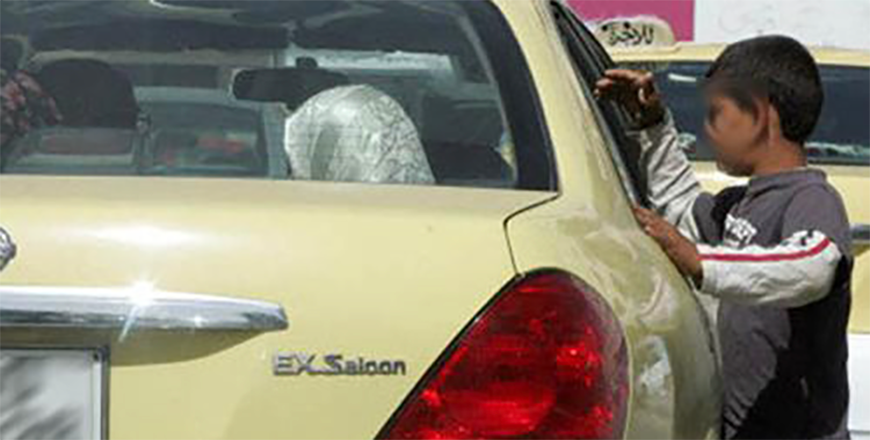You are here
Public concern grows over surge in street begging across Jordan
By Maria Weldali - May 05,2025 - Last updated at May 05,2025

With the summer season approaching and public spaces becoming increasingly crowded, the phenomenon of street begging is becoming more visible across the Kingdom (JT file)
AMMAN — With the summer season approaching and public spaces becoming increasingly crowded, the phenomenon of street begging is becoming more visible across the Kingdom, prompting concern among citizens and experts.
From traffic lights to commercial centres, residents are encountering a growing number of beggars, sparking ongoing public debate and prompting continued intervention by authorities.
According to the Ministry of Social Development, a total of 470 anti-begging field campaigns were carried out in April alone, leading to the apprehension of 881 individuals. These efforts are part of a broader national strategy to combat vagrancy and reduce its impact on public life, the ministry said.
Community development expert Hala Hasan told The Jordan Times that the seasonal surge in begging is a recurring trend. “While some cases reflect genuine hardship, many are tied to organised networks that exploit emotional appeals and public generosity,” she said.
Many citizens report feeling both sympathetic and uncertain. Ahmad Mheisen, a 41-year-old Amman resident, said: “I see the same people every day. It’s difficult to know who truly needs help. Sometimes I give, but other times I feel taken advantage of.”
Nada Ajrami, a mother of two, echoed the sentiment: “I used to help whenever I could, but now I’m more cautious and selective about whom I support.”
The Ministry continues to urge the public not to give money directly to beggars, instead encouraging donations to licensed charities and organisations working to address poverty, social exclusion, and rehabilitation.
“While law enforcement is part of the solution, long-term impact comes from education, protection, and social support systems, not short-term handouts,” Hasan stressed.
As temperatures rise and city streets grow busier, distinguishing between genuine need and exploitation becomes increasingly difficult, raising urgent questions about effective social care and shared responsibility.
Related Articles
AMMAN — Social Development Minister Hala Lattouf on Monday said that the ministry has begun preparing an anti-begging plan, the Jordan News
A total of 1,116 beggars have been removed from streets since the beginning of the year, over double the 400 who were caught in the same period in 2014, an official said Thursday.
AMMAN — The Ministry of Social Development (MOSD), in collaboration with the Public Security Directorate (PSD) and the Greater Amman Municip













